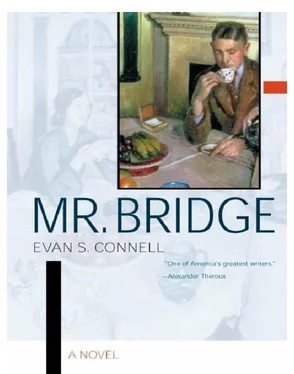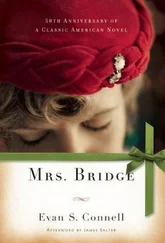Is there anything you need or want? I do not, of course, know how the money is holding out. I trust you are not spending the sum that I put into the bank for you recklessly. Money does not grow on trees. I worked very hard for many years to acquire what I have. Buy whatever you need and enjoy yourself, but remember there is much more to a successful life than playing around and indulging various fancies to no constructive purpose. My condition remains — you shall expect no more money from me as long as you remain in New York (except in case of emergency). If you enjoy living there, as you seem to, I sincerely hope you will prove capable of supporting yourself. Therefore you should strive for advancement and not squander your salary. If so, you will regret it. But as I say, if you should abruptly fall ill or some other emergency should arise, do not hesitate to get in touch with me. After all, that is what fathers are for.
A number of young men have telephoned the house to ask your whereabouts. Your mother is taking care of the situation. Neither of us is in favor of giving out your address unless we know the person, or unless you specifically request us to do so. Now that you are no longer a child but are “on your own” in one of the world’s largest cities you should take care. I am sure you are aware that carrying on with strangers can prove perilous. You will discover that old friends are best (something I learned after much heartache).
I doubt if I have much news to interest you. One of the men with whom I have lunch at the Muehlebach, Dr. Alexis Sauer, who I know you remember, recently returned from a flying visit to the Orient and India with his second wife, who is very much younger than himself. I gather they had a “close call” at one point in the plane. His descriptions of the beggars and suffering and local color, such as elephants with painted foreheads, were fascinating, but I doubt if I care to visit that area. There is suffering everyplace on earth-1 have witnessed enough first and secondhand and have little desire to travel halfway around the globe for a glimpse of leprous beggars. It is my opinion our European tour will prove more rewarding. However, as the French say, “Chacun à son goût”! I trust you recall enough of your high school French to be able to translate this expression.
In regard to news closer to home we read in the Star that one of your classmates, Sue Ellen Stubbs, who is the niece of a friend of your mother, Margaret Hockaday, is engaged to a West Point man whose name escapes me at the moment. They are being married in the autumn at West Point. October, if memory serves. Should you wish to attend the wedding, I am sure it could be arranged. Let your mother know and she will telephone Miss Hockaday. I do not know how close you and this girl were during your schooldays, however it seems to me that a West Point wedding ought to be very colorful.
I do not believe there is much else. Mrs. Barron and your mother are planning to visit the Nelson Gallery this afternoon. Mrs. Barron spends a great deal of time visiting art galleries of all sorts. It is too bad you and she did not get to know each other better. I suspect the two of you have much in common.
Our weather has changed for the better. We have been reasonably comfortable the past several days with moderate temperatures, thunderstorms, and showers.
Love,
Dad
Finding himself a few minutes ahead of schedule, he decided to walk to the federal courthouse instead of calling a taxi. On the way he passed a bookstore, and in the display window stood an expensive volume on the art of India. He stopped walking. Elephants with painted foreheads, cribs of women, moaning beggars, funeral pyres, ancient red-stone forts, leprosy, children infested with lice, and quite a lot more of what he found in India had been described by Dr. Sauer while eating lobster bisque at the Terrace Grill. Among the spectacles he described were the temples of Konorak and Khajuraho, whose walls were decorated with erotic sculpture — thousands of men and women in fantastic positions and groups of people performing as though they were animals — and this was what first came to mind when Mr. Bridge thought about India, because it represented an attitude toward life very distant from life as he knew it in Kansas City. Children dying of starvation on the streets of Calcutta were easier to imagine than the existence of temples covered with swarms of copulating figures, perhaps because poverty in some degree was common. Everywhere in the world one could find sick and hungry people. In Europe there was filth, hunger, and squalor, and this could be found also in Kansas City; but nowhere else was anything comparable to these Indian temple displays of licentiousness.
He walked into the store and asked to see the book. It was filled with handsome, colored photographs of painting and sculpture. There were no pictures of the scenes Dr. Sauer had described; however, there were a good many photographs of impossibly voluptuous, dreamily smiling dancers with almond eyes and bells on their ankles.
He bought this book and at home he placed it on the coffee table in the living room. Mrs. Bridge promptly exclaimed over it, but then she began to look through it, and after that she did not have very much to say.
Days passed. She did not mention the book again. Douglas frequently looked at it, Harriet was found with it in her lap when she was supposed to be vacuuming the carpet, and Carolyn looked at it when nobody else was around. But the book was never mentioned. Mr. Bridge considered the situation, and one evening without a word he picked it up and carried it into the breakfast room where he made a place for it on the top shelf between Ben-Hur and a leather-bound copy of Who’s Who in Kansas City.
106 Publishers’ Graveyard
That the only large bookshelves should be in the breakfast room had always seemed curious; nevertheless, that was where they had been built, so there most of the household books eventually were laid to rest. There lay the old Agatha Christies and Erle Stanley Gardners he had employed as soporifics after the tension of the day. There stood several abandoned cookbooks, the dictionary, The Rubáiyát, The Sheriff of Chispa Loma , the travel adventures of Lowell Thomas, Dr. Foster’s little volume of essays titled Thoughts at Eventide, Hammond’s Illustrated Nature Guide, and Northwest Passage , and various school textbooks which for one reason or another had not been exchanged at the beginning of the new school year. There rested, all forgotten, those diaphanous novels penned by ladies with three names which Mrs. Bridge had hurried out to buy because everybody that season was buying them, or which she had won as a prize at an afternoon card party. There, too, like a warped tombstone, leaned a gaunt volume of Currier and Ives prints, and Thirty Days to a More Powerful Vocabulary, and The Magnificent Ambersons , and a biography of Marie Antoinette. And there were others. Unreadable Christmas gifts and birthday gifts. In the dappled sunshine of the breakfast room, arranged solemnly side by side or piled one atop the other could be found an almanac with humorous drawings, books about gardening, A Treasury of Best Loved Poems , a short history of the Civil War, the collected lyrics of Sara Teasdale, Great Wines of France, The Santa Fe Trail, Of Human Bondage, Bambi, and numerous others — undisturbed by any hand, unless it might be Harriet indolently dusting the shelves with a wand of peacock feathers.
En route to Europe they stopped three days and two nights in New York, but Ruth spent only one evening with them. While they were finishing dinner at a Chinese restaurant she offered a confused and apologetic explanation as to why she could not see them on the second evening, immediately adding that when they came through New York on the way back to Kansas City she would have more free time. To conceal his disappointment Mr. Bridge picked up his fortune cookie, broke it, and pulled out the paper.
Читать дальше












